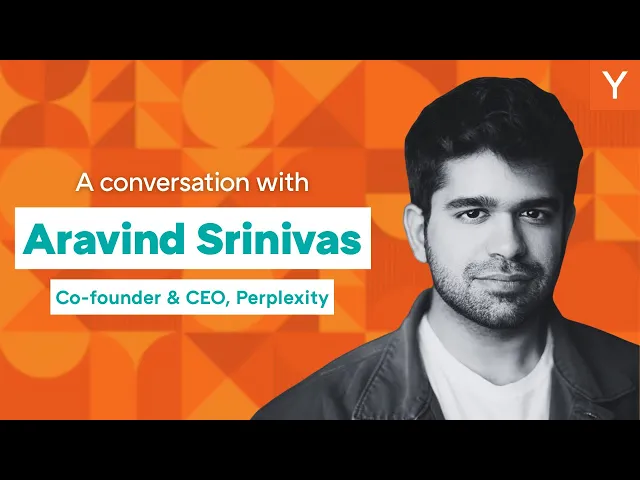Aravind Srinivas: The Race to Build the AI Browser of the Future

Perplexity's Srinivas charts a new AI browser future
AI is rapidly reshaping how we interact with the digital world, and few people understand this transformation better than Aravind Srinivas, the CEO of Perplexity AI. In a thoughtful conversation about the evolution of internet search and browsing, Srinivas outlines his vision for how AI will fundamentally change our relationship with information online.
The Shifting Information Landscape
-
Traditional search engines have dominated information discovery for decades, but AI is now enabling a more direct path from question to answer without requiring users to sift through multiple sources themselves.
-
Perplexity is pioneering a new paradigm that combines search, browsing, and AI assistance in one unified experience, moving beyond the limitations of both conventional search engines and chatbots.
-
The fundamental innovation is creating a trustworthy system that provides direct answers while maintaining citation integrity and source reliability, solving the "hallucination" problem that plagues many AI systems.
The Power of Direct Answers
What makes Perplexity's approach truly revolutionary is how it fundamentally reimagines the search experience. Rather than presenting users with a list of links to explore, it delivers comprehensive, synthesized answers directly. This matters tremendously in our current information ecosystem where attention is fractured and cognitive overload is the norm.
This shift represents one of the most significant evolutions in human-computer interaction since the early days of the internet. For businesses and professionals, this means less time spent sifting through search results and more time applying the information to solve actual problems. The impact on productivity could be substantial, potentially saving knowledge workers hours each week previously lost to inefficient information gathering.
Beyond the Transcript
What Srinivas doesn't fully explore in the conversation is how this technology might reshape entire industries. Consider journalism and content creation. When AI can instantly synthesize information from multiple sources, the value proposition of traditional content aggregators changes dramatically. Publishers will need to double down on original reporting, analysis, and expertise that AI systems will cite rather than replace.
For business leaders, it's worth considering how these tools might transform competitive intelligence. Imagine asking complex questions about market trends, competitor strategies, or consumer behavior and receiving comprehensive, nuanced answers in seconds. The strategic advantage will shift from who has access to
Recent Videos
How To Earn MONEY With Images (No Bullsh*t)
Smart earnings from your image collection In today's digital economy, passive income streams have become increasingly accessible to creators with various skill sets. A recent YouTube video cuts through the hype to explore legitimate ways photographers, designers, and even casual smartphone users can monetize their image collections. The strategies outlined don't rely on unrealistic promises or complicated schemes—instead, they focus on established marketplaces with proven revenue potential for image creators. Key Points Stock photography platforms like Shutterstock, Adobe Stock, and Getty Images remain viable income sources when you understand their specific requirements and optimize your submissions accordingly. Specialized marketplaces focusing...
Oct 3, 2025New SHAPE SHIFTING AI Robot Is Freaking People Out
Liquid robots will change everything In the quiet labs of Carnegie Mellon University, scientists have created something that feels plucked from science fiction—a magnetic slime robot that can transform between liquid and solid states, slipping through tight spaces before reassembling on the other side. This technology, showcased in a recent YouTube video, represents a significant leap beyond traditional robotics into a realm where machines mimic not just animal movements, but their fundamental physical properties. While the internet might be buzzing with dystopian concerns about "shape-shifting terminators," the reality offers far more promising applications that could revolutionize medicine, rescue operations, and...
Oct 3, 2025How To Do Homeless AI Tiktok Trend (Tiktok Homeless AI Tutorial)
AI homeless trend raises ethical concerns In an era where social media trends evolve faster than we can comprehend them, TikTok's "homeless AI" trend has sparked both creative engagement and serious ethical questions. The trend, which involves using AI to transform ordinary photos into images depicting homelessness, has rapidly gained traction across the platform, with creators eagerly jumping on board to showcase their digital transformations. While the technical process is relatively straightforward, the implications of digitally "becoming homeless" for entertainment deserve careful consideration. The video tutorial provides a step-by-step guide on creating these AI-generated images, explaining how users can transform...
